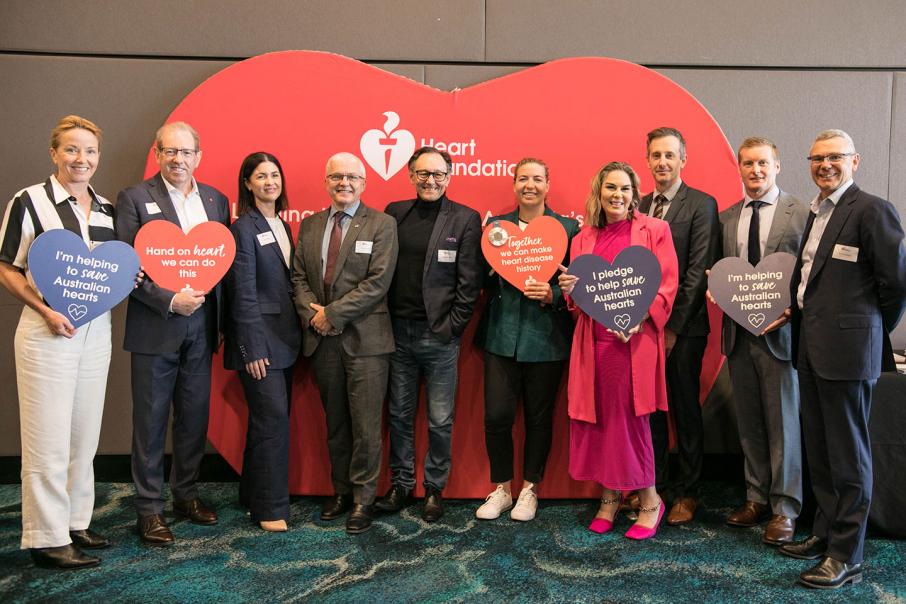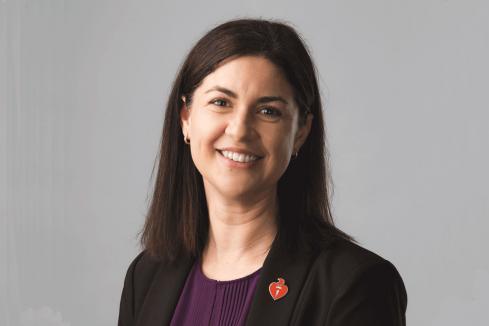

Heart disease is a leading cause of death among Australian women, yet many are unaware of the specific risks they face. Women’s cardiovascular health changes significantly throughout their lives, making it crucial to understand the evolving risk factors and take proactive steps to safeguard heart health.
In October, the Heart Foundation held the WA Women’s Hearts Breakfast at Optus Stadium, where women’s heart health took centre stage. The event drew around 160 guests, including donors, government officials, healthcare professionals, and leaders from business and industry.
Ben Harvey, Editor-in-Chief of The West Australian and a member of the WA Heart Foundation Advisory Board moderated a thought-provoking panel discussion. Panellists included triple Olympian Zoe Arancini, Captain Women’s Australian Water Polo Team, and renowned cardiologist and member of the WA Heart Foundation Advisory Board, Dr. Matthew Best.
Harvey guided a fascinating conversation exploring how cardiac performance adapts under stress, both in everyday life and at an elite level. Ms Arancini shared personal insights on how changes in heart physiology fuelled their athletic success. Dr Best emphasised the importance of “listening to your heart” under normal conditions to recognise when medical attention is needed.
The Heart Foundation’s WA General Manager, Dr. Helena Viola, a cardiovascular biochemist with nearly 20 years of research experience at UWA, underscored the significance of this message. “Heart disease is often considered a male problem, but one Australian woman dies from heart disease nearly every hour,” Dr. Viola told Business News.
While chest pain is the most common symptom of a heart attack, Dr. Viola highlighted that women often experience additional symptoms, including pain in the jaw, shoulder, or back, nausea, shortness of breath, dizziness, and extreme fatigue. “Women are less likely to recognise these warning signs or seek help promptly,” she added.
Dr Viola also said that women were more likely to experience “silent” heart attacks, “where symptoms are so mild they go unnoticed until serious damage has occurred.”
“Additionally, research shows that women are less likely to be prescribed heart medications or receive invasive treatments like angioplasty or bypass surgery, compared to men,” she said.
Dr. Viola urged women to take control of their heart health by getting a Medicare-subsidised 20-minute Heart Health Check. This simple check, available for women over 45 (or over 30 for First Nations women), assesses key risk factors like blood pressure, cholesterol, blood sugar, and family history.
“Looking after our heart health ensures a healthier future, not just for ourselves but for those we love,” she said.
The Heart Foundation continues to fund life-saving research through the generosity of donors and corporate partnerships. By raising awareness and encouraging proactive care, the Heart Foundation is helping Australian women better understand their hearts—and save lives.
Please contact helena.viola@heartfoundation.org.au for more information.










